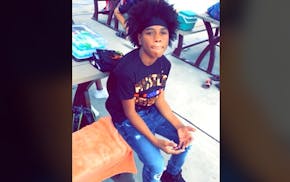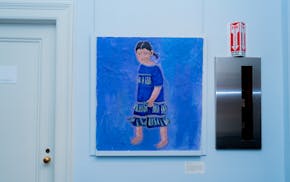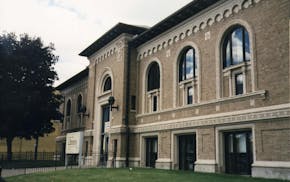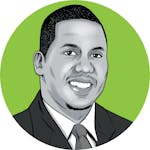When she moved to Minneapolis from Mississippi in the 1980s, Valerie Stevenson experienced culture shock on several levels. But she quickly latched onto the Phyllis Wheatley Community Center in north Minneapolis.
"I moved to north Minneapolis in 1981," said Stevenson, the center's interim executive director. "I'm from a small town, never really been to the city, so that was different for me. I'm 14 years old, so when I moved, we moved over north. I befriended someone on my block who introduced me to Phyllis Wheatley. She brought me down to Phyllis Wheatley, and that's where it started."
At the center, she was a young advocate for marginalized families in the Black community, including her own, before she worked full-time at the center and later, after a brief retirement, agreed to become the interim executive director.
On April 11, Stevenson and others who support the center will celebrate 100 years of service in the Twin Cities, where the center continues to fight for equity and opportunity. It will hold its centennial celebration at Quincy Hall in northeast Minneapolis. The longevity of the organization is a testament to its investment in the community. But the gala is also an opportunity for those within a community it has served to help the center continue to provide services to some of the most vulnerable folks in the Twin Cities.
"Because of the mentoring, because of this center, the people I met there, because of just the relationships I built, the friends I made going to the camp, going to the community center, just so many things I learned … it put me on the path to be the person that I am today, the woman I am today," Stevenson said. "That's my nurturing spirit, my mentoring spirit, my wanting to be able to give back and help people. That's why I am the way I am right now, because of that experience I had going there as a kid, as a teenager."
The Phyllis Wheatley Community Center is not only a living embodiment of the value of kindness, charity and love, it's also a historic representation of a city with a past that is not always discussed.
I am always stunned when I meet people my age who do not know that the Twin Cities area has a history of segregation. They are folks who think that some of the policies of the Jim Crow South never made their way to Minneapolis. But the Phyllis Wheatley Center was created in 1924 by women with the Minneapolis WCA Foundation who wanted to give Black women a safe place to stay when they were barred from living at the University of Minnesota's dorms while they studied.
The center was also a haven for Black performers and artists who traveled to Minneapolis during the 1930s and 1940s and were not allowed to stay at the city's best hotels. Marian Anderson, the renowned opera singer, stayed there. W.E.B. Du Bois, Duke Ellington and Langston Hughes did, too.
"It was lodging for any African American who was traveling through the country at the time, so there were a lot of people that came out of the Harlem Renaissance who stayed at the center," said Katy Nelson, senior director of development and communications for the center.
Its history matters, as does its current role. The center recently launched a financial seminar for single mothers. There is a mentorship program that helped Stevenson and others like her when she first moved to Minnesota. There is also Camp Katharine Parsons; proceeds from the gala will help support the outdoor camp, which has offered Black youths opportunities to learn more about the outdoors.
"I'm from the South, but I had never been to a camp, so I didn't know what that experience was like," Stevenson said. "And I think … this gives children an opportunity to experience the outdoors in ways that they've never experienced before, especially children who generally don't go to camps or don't know anything about having an outdoor experience like hiking and boating and canoeing and fishing."
The issues facing community centers today are different than they were a century ago. Just last week, the Phyllis Wheatley Community Center shut down its COVID clinic after the loss of federal grants. The political turbulence that has disrupted institutions around the country has also robbed the center of its ability to offer crucial resources to those who need them. That's why the gala is not only a celebration but also a charge to support a place at a challenging, unpredictable juncture.
For more than 100 years, the Phyllis Wheatley Community Center has been a backbone of care for Black people in Minneapolis. Stevenson said she looks forward to 100 more.
"It's all about being able to adapt to whatever the issue or the concern is in the community," she said. "My hope for [the Phyllis Wheatley Community Center] for the next one hundred years is that we just continue to thrive."

Medcalf: This summer, let's all be more vigilant about our children — and everyone else's

Medcalf: Mia program provides safe space for young people to create

Medcalf: George Floyd's daughter, now 11, on life without her dad: 'It's hard'


![Basketball courts at the new Lifetime Fitness at Southdale Center in Edina, Minn., on Monday, December 2, 2019. ] RENEE JONES SCHNEIDER ¥ renee.j](https://arc.stimg.co/startribunemedia/6RAMR36J56VI6UXLMJJHL4FJIU.jpg?w=600&h=600&auto=format%2Ccompress&cs=tinysrgb)